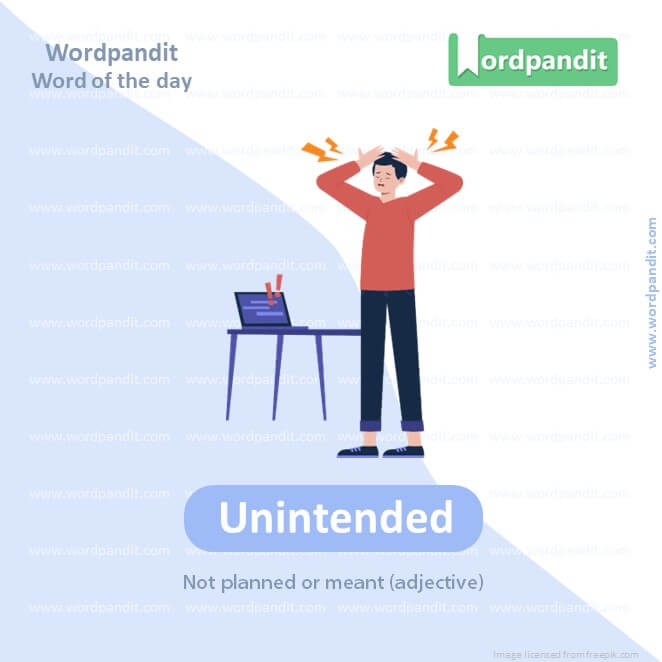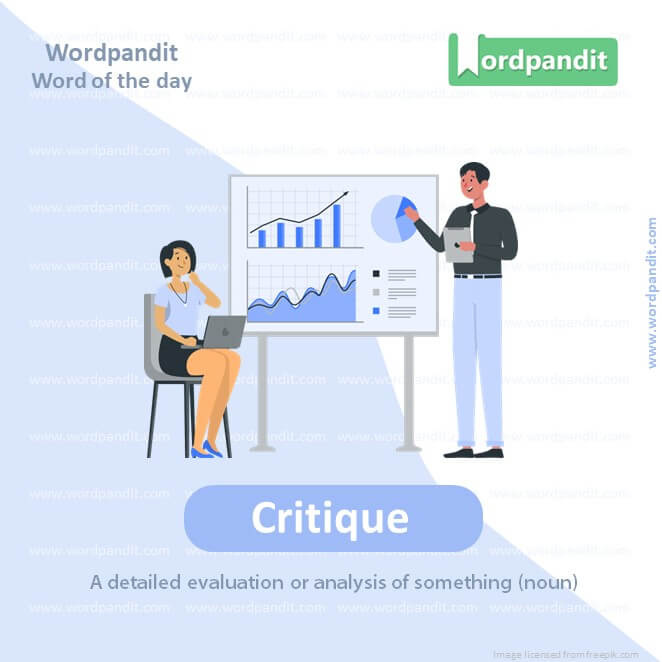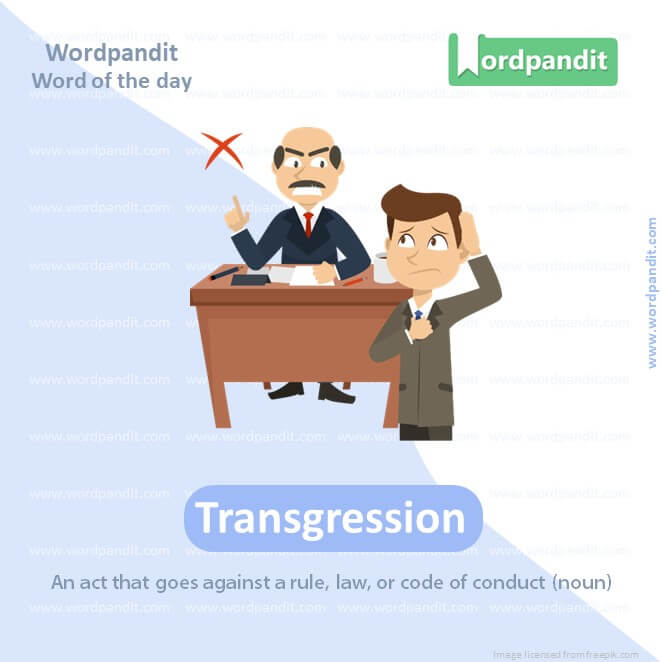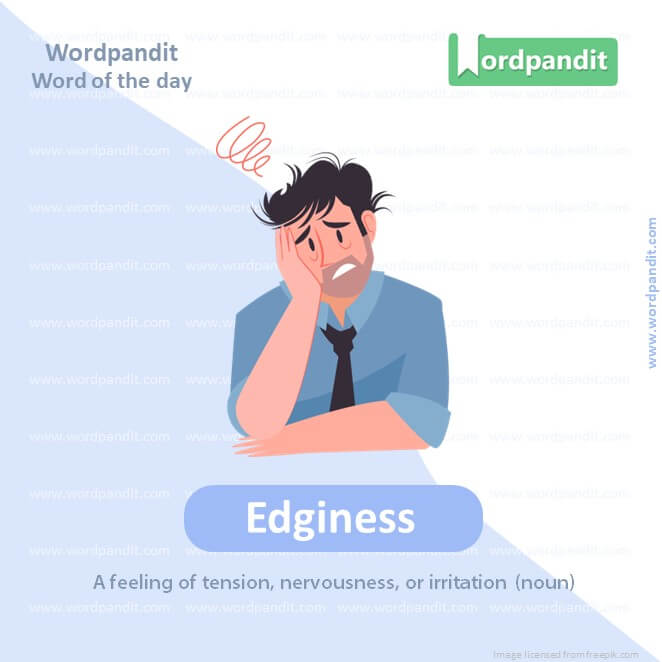Daily Vocabulary Words: List of Daily Used Words in Leading International Newspapers
Hi there. Welcome to this special section @ Wordpandit.
Our endeavour here is very simple: to highlight important daily vocabulary words, which you would come across in leading newspapers in the country. We have included the following newspapers in our selection:
• The New York Times
• The Washington Post
• Scientific American
• BBC
• The Guardian
• Psychology Today
• Wall Street Journal
• The Economist
We are putting in extensive work for developing your vocabulary. All you have got to do is be regular with this section and check out this post on a daily basis. This is your repository of words that are commonly used and essentially, we are posting a list of daily used words. Hence, this has significant practical application as it teaches you words that are used commonly in leading publications mentioned above.
Visit the website daily to learn words from leading international newspapers.

WORD-1: Unintended
CONTEXT: the tensions in the Middle East are the unintended consequences of another invasion, the one launched by the United States in Iraq in 2003.
SOURCE: Washington Post
EXPLANATORY PARAGRAPH: Imagine you wanted to draw a sun, but you accidentally made a smudge on your paper. You didn’t mean to do that smudge; it just happened. “Unintended” is a word that means something happened, but you didn’t plan or mean for it to happen.
MEANING: Not planned or meant (adjective).
PRONUNCIATION: un-in-TEN-ded
SYNONYMS: Accidental, Unplanned, Inadvertent, Unpremeditated, Unintentional, Coincidental, Unforeseen
USAGE EXAMPLES:
1. The joke had an unintended effect of making her cry.
2. The medicine had some unintended side effects.
3. His comment caused unintended confusion in the group.
4. The new rule led to some unintended consequences.

WORD-2: Rattled
CONTEXT: This rattled the Persian Gulf Arabs, who are overwhelmingly Sunnis, and Israel, bringing them closer together.
SOURCE: Al Jazeera
EXPLANATORY PARAGRAPH: Think about shaking a box of crayons really hard. The crayons inside make a lot of noise and move all around, right? Just like those crayons, when someone feels “rattled”, it means they’re shaken up, surprised, or nervous about something.
MEANING: Made someone feel nervous, worried, or upset (verb).
PRONUNCIATION: RAT-tuld
SYNONYMS: Unsettled, Disturbed, Flustered, Disconcerted, Alarmed, Frazzled, Agitated
USAGE EXAMPLES:
1. The sudden loud noise rattled him.
2. She seemed rattled by the unexpected question.
3. I was completely rattled by the bad news.
4. He was rattled when he couldn’t find his keys.

WORD-3: Critique
CONTEXT: I realize it is easy to critique from afar.
SOURCE: New York Times
EXPLANATORY PARAGRAPH: Imagine you made a beautiful drawing and showed it to someone. If they tell you what they like about it and what you could do better, they’re giving you their thoughts or “critique”. It’s like when someone helps you see what’s good and what can be improved.
MEANING: A detailed evaluation or analysis of something (noun).
PRONUNCIATION: kri-TEEK
SYNONYMS: Review, Analysis, Evaluation, Assessment, Appraisal, Examination, Commentary
USAGE EXAMPLES:
1. The teacher gave a critique on my essay.
2. She wrote a film critique for the local newspaper.
3. The art show allowed visitors to leave their critique of the paintings.
4. His book received mixed critiques from critics.
WORD-4: Foreseeable
CONTEXT: It will be very difficult to think about achieving a peaceful solution in the foreseeable future.
SOURCE: New York Times
EXPLANATORY PARAGRAPH: Imagine you’re on a playground, looking down a slide. You can see the whole slide and know where it ends. “Foreseeable” is a word that means something you can predict or see happening soon, just like you can see the end of that slide.
MEANING: Able to be predicted or expected in the near future (adjective).
PRONUNCIATION: for-SEE-uh-bul
SYNONYMS: Predictable, Expected, Anticipated, Likely, Projected, Imminent, Probable
USAGE EXAMPLES:
1. In the foreseeable future, we will need to move to a bigger house.
2. The project should be completed in the foreseeable future.
3. There are no trips planned for the foreseeable future.
4. Given the current conditions, rain is not in the foreseeable forecast.

WORD-5: Transgression
CONTEXT: What’s remarkable isn’t the transgression, but the penalty.
SOURCE: Guardian
EXPLANATORY PARAGRAPH: Remember when you were told not to touch the cookies, but you took one anyway? Oops! That’s like a “transgression”. It means doing something that’s not allowed or breaking a rule.
MEANING: An act that goes against a rule, law, or code of conduct (noun).
PRONUNCIATION: tran-ZGRESH-un
SYNONYMS: Offense, Crime, Sin, Misdeed, Wrongdoing, Violation, Infringement
USAGE EXAMPLES:
1. He was punished for his transgression against school rules.
2. Forgiveness is sought for past transgressions.
3. The community was aware of his transgressions.
4. Each transgression resulted in a penalty for the team.
WORD-6: Splintering
CONTEXT: catastrophic damage — ending a satellite’s mission or, worse, splintering that satellite into fragments.
SOURCE: Al Jazeera
EXPLANATORY PARAGRAPH: Imagine you’re breaking a pencil into smaller pieces. Those tiny, sharp pieces are “splinters”. When something is “splintering”, it’s breaking into those small, sharp pieces.
MEANING: Breaking into small, sharp fragments (verb).
PRONUNCIATION: SPLIN-ter-ing
SYNONYMS: Fracturing, Shattering, Cracking, Splitting, Breaking, Fragmenting, Snapping
USAGE EXAMPLES:
1. The old wood was splintering under the pressure.
2. The mirror fell, splintering into a thousand pieces.
3. The group was splintering into smaller factions.
4. With time, the dry paint started splintering off the wall.
WORD-7: Delegitimise
CONTEXT: It is an attempt to reframe the Gazan conflict as a moral, rather than political, issue, and to delegitimise Palestinian perspectives.
SOURCE: Guardian
EXPLANATORY PARAGRAPH: Imagine if someone said your favorite toy isn’t a real toy. That wouldn’t feel good, right? “Delegitimise” means to make something seem not real, important, or acceptable. It’s like saying something doesn’t count or matter.
MEANING: To diminish or destroy the legitimacy, authority, or standing of something (verb).
PRONUNCIATION: dee-leh-JIT-ih-mize
SYNONYMS: Discredit, Undermine, Invalidate, Disqualify, Devalue, Disparage, Marginalize
USAGE EXAMPLES:
1. The campaign aimed to delegitimise the opposition.
2. His actions served to delegitimise the entire process.
3. The rumors were spread to delegitimise her achievements.
4. They attempted to delegitimise the new movement.

WORD-8: Edginess
CONTEXT: Travellers come for that edginess for the frisson.
SOURCE: Guardian
EXPLANATORY PARAGRAPH: You know how sometimes you feel super excited or nervous, like just before opening a big present? That feeling inside you, when you can’t stay calm or still, is “edginess”. It’s like having butterflies in your stomach.
MEANING: A feeling of tension, nervousness, or irritation (noun).
PRONUNCIATION: EDJ-ee-ness
SYNONYMS: Restlessness, Anxiety, Unease, Tension, Nervousness, Jitteriness, Anxiousness
USAGE EXAMPLES:
1. The long wait added to her edginess.
2. There was a sense of edginess in the room before the announcement.
3. His constant pacing showed his edginess.
4. The coffee only increased her edginess.
WORD-9: Salubrious
CONTEXT: the frisson that they might be among gangsters in even the most salubrious of settings.
SOURCE: Guardian
EXPLANATORY PARAGRAPH: Think of a beautiful day when the air is clean, the sun is shining, and you feel really good being outside. “Salubrious” is a word that means something is healthy or good for you, just like that beautiful day.
MEANING: Beneficial to health or well-being (adjective).
PRONUNCIATION: sah-LOO-bree-us
SYNONYMS: Healthy, Wholesome, Healthful, Beneficial, Nutritious, Hygienic, Tonic
USAGE EXAMPLES:
1. The village is known for its salubrious climate.
2. The doctor recommended a more salubrious lifestyle.
3. They moved to the countryside for a salubrious environment.
4. Fresh fruits and vegetables have a salubrious effect on our health.
WORD-10: Ostentatious
CONTEXT: Rootless moderns and arrivistes use the ostentatious antiquities of Italy as settings to convey credibility, gravitas and longevity.
SOURCE: Guardian
EXPLANATORY PARAGRAPH: Imagine wearing a big, shiny crown, a cape with sparkles, and shoes that light up – all at once! That’s a lot, right? “Ostentatious” is a word that describes something that is very showy or flashy, like trying to get everyone’s attention in a big way.
MEANING: Designed to impress or attract notice by being flashy or showy (adjective).
PRONUNCIATION: os-ten-TAY-shus
SYNONYMS: Flashy, Showy, Flamboyant, Gaudy, Loud, Extravagant, Pretentious
USAGE EXAMPLES:
1. The millionaire’s ostentatious mansion was the talk of the town.
2. She wore an ostentatious dress to the party.
3. The car was too ostentatious for his simple taste.
4. They criticized his ostentatious display of wealth.
vocabulary upsc
The Union Public Service Commission (UPSC) examination represents a significant milestone for many aspirants across India. Part of the journey to success involves comprehending and utilizing a robust ‘vocabulary UPSC’ that can set competitive exam takers apart from the crowd. Let us delve into the nuances of how this essential resource can be mastered effectively.
For starters, one has to understand the significance of ‘vocabulary UPSC.’ This is much more than rote learning a word list. It’s about understanding the connotations, the nuances, and the context in which these words are used. This understanding can greatly improve not only your comprehension skills but also your performance in the English language section of the The Union Public Service Commission exam.
Following the understanding stage, come practice and revision. ‘Vocabulary UPSC’ learning cannot occur overnight, and it is essential to devote a specified time daily to learn and review new words. Incorporating vocabulary-learning into your daily study habit can help you enhance your linguistic skills and aid in long-term retention.
Another much-needed approach to ‘vocabulary UPSC’ is using the learned words in regular communication. This method reinforces learning and aids retention. Additionally, creating a personal word diary where you note down new words, their meanings, and context can serve as your go-to guide for revision.
One common misconception about ‘vocabulary UPSC’ is that it’s only limited to English. However, it is vital to understand that the concept extends beyond languages. Terms used in subjects like History, Geography, or Economics should also be part of your vocabulary repository. This multifaceted conception can significantly aid in developing a comprehensive understanding of subjects, ultimately resulting in a higher score.
In conclusion, mastering ‘vocabulary UPSC’ requires consistent effort, deep understanding, and practical application. The journey to UPSC success is not just about learning; it’s about knowing how to use your learning effectively. So, embark on this discovery with a clear goal and unwavering dedication, and success will surely be yours.









